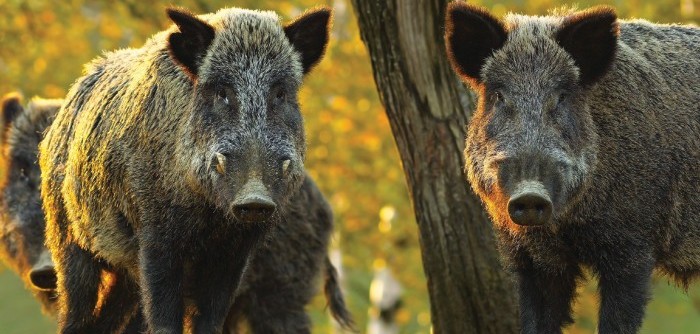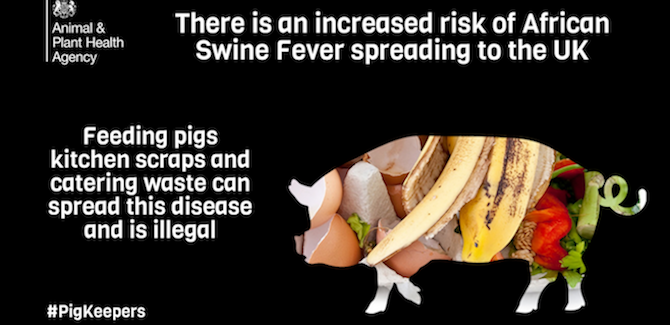African swine fever (ASF) has been reported in wild boar in Hungary for the first time, worryingly outside the ASF detection zone in place in the country.
The virus was confirmed in a single wild boar in the Heves region on Saturday, April 21, the international animal health body OIE reported.
Hungary has been monitoring dead wild boar for ASF in Eastern counties near borders with the Ukraine and Poland since 2016, with border checks for pork/pork products and increased passive surveillance in the rest of country from 2017.
However, this first case of ASF in Hungary was detected well outside this surveillance zone in the middle of the country. The area will now become a restricted zone.
While the source of the virus is officially ‘unknown or inconclusive’, the OIE said: “Based on the information available at the moment the most likely source of the infection is food waste, introduced by foreign citizens working in large numbers in industrial facilities located in this area. The detailed epidemiological investigation is ongoing.”
Concerning
Anna Williamson, the Animal and Plant Health Agency’s (APHA) pig veterinary lead, said: “This is concerning as it means that either infection in wild boar nearer the border has been missed, or that the case results from other means of transmission, such as illegal movement of infected pigs or feeding of infected pork/pork products, as was suspected to be the case for the geographical jump to the Czech Republic in 2017.”
Pork imports from Hungary represented only about 0.64% of all pork imports to UK in 2017, according to APHA. However, ‘it is of note’, it added, that 4.5% of lorries from mainland Europe through British ports are Hungarian-registered.
Dr Williamson added: “This continued westward spread of ASF emphasises the need to raise awareness amongst all pig keepers across Europe of the need for them to take stringent external biosecurity precautions to reduce the risk of introduction.”
Important procedures to help keep ASF out of the UK include:
- Providing dedicated clothing and boots for workers and visitors
- Limiting visitors to a minimum
- Preventing outside vehicles which may be contaminated from coming on to the farm.
These messages, and the importance of not feeding kitchen and catering waste have been highlighted in recent public APHA communications.
See Pig World’s analysis of the growing threat ASF poses to western Europe here and more on how to keep ASF out of the UK, including the NPA’s views, here
NPA reaction
NPA chief executive Zoe Davies said: “This is a worrying development as it highlights once again how ASF can leap vast distances, despite surveillance and checks in supposedly high risk areas.
“ASF is a real threat to the UK. This discovery reinforces once again the need for vigilance when it comes biosecurity on farms, particularly in cases where visitors or workers come from high risk areas of Europe. We continue to remind all pig keepers that it is illegal to feed food waste to pigs, as this is one most likely routes for infection to reach the UK pig herd.
“We also continue to call for measure to ensure our own feral pig populations, particularly in the Forest of Dean, are kept under control. If the virus ever gets into our feral pig population, it could take years before we are able to free ourselves from crippling export restrictions.”





